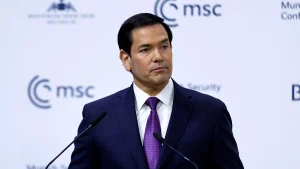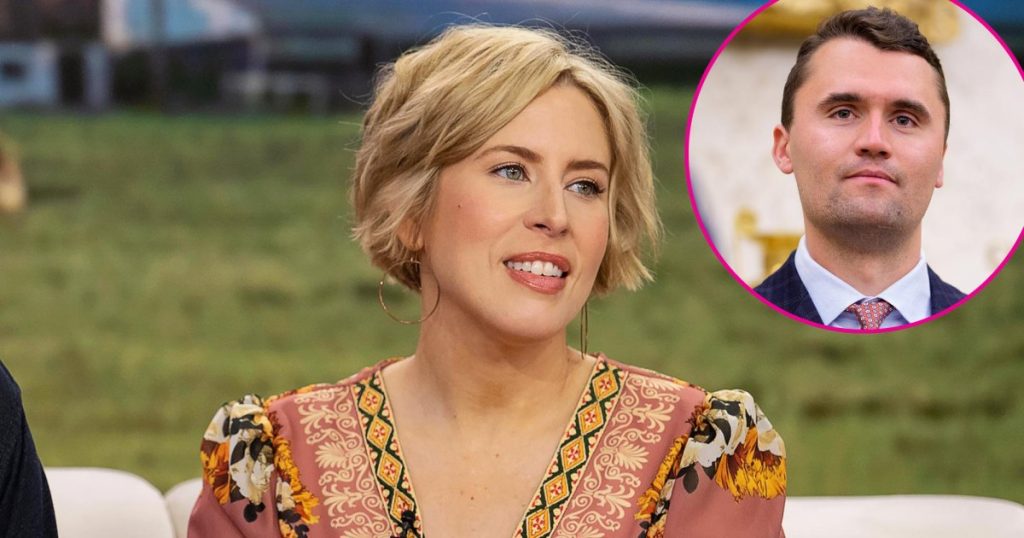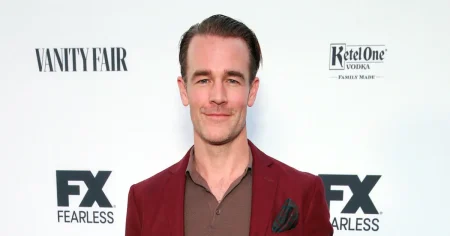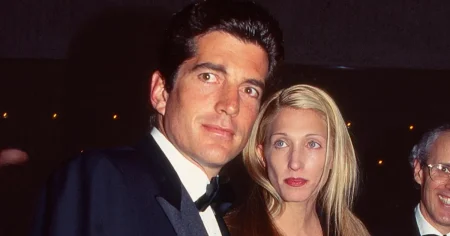Erin Napier Stands Firm Against Online Hatred Following Her Response to Charlie Kirk’s Death
In the wake of conservative commentator Charlie Kirk’s tragic shooting death on September 10 at Utah Valley University, HGTV star Erin Napier found herself at the center of unexpected controversy. The “Home Town” host, known for her heartwarming community restoration work alongside husband Ben in Laurel, Mississippi, posted a simple message on her Instagram Story that read, “Only the demonized celebrate death.” This seemingly straightforward statement of human compassion quickly ignited a firestorm of polarized reactions that revealed much about our current cultural climate where even basic expressions of decency can become battlegrounds for political division.
The backlash Napier received was swift and severe, prompting her to return to social media just an hour later, expressing her shock at the disturbing messages flooding her inbox. “I am revolted by some of the comments in my DMs about the last slide,” she wrote, adding firmly, “Unfollow me, immediately, if you could be one of those comments. Christ, have mercy on us all.” Rather than backing down from her position that murder should never be celebrated regardless of political affiliation, Napier chose transparency by sharing some of the most troubling messages she’d received. One viewer announced they would trash Napier’s products and boycott her show, claiming her stance represented “support of intolerance and hate.” Napier’s response was direct and clarifying: this vitriol was directed at her “because I will not celebrate murder.”
Perhaps most disturbing was a message Napier received from someone claiming to be a psychiatrist, who wrote, “This guy was ALL FOR IT. He died for what he believed in. God have mercy on his soul because I do not.” The message also made presumptions about Napier’s personal choice to homeschool her children. Understandably upset by this invasion of her family choices, Napier responded with protective maternal instinct, “You know nothing about why I am homeschooling my children, you sick goblin.” The exchange highlights how quickly online discourse can devolve into personal attacks that cross boundaries of basic decency, particularly when emotions run high around politically charged events.
What makes this situation particularly revealing is that Napier’s original message never mentioned Kirk by name, nor did it express support for his controversial political positions. It simply advocated for the fundamental human principle that death—especially violent death—should not be celebrated, regardless of who the victim might be. Kirk, at just 31 years old, was a polarizing figure who headed Turning Point USA and hosted “The Charlie Kirk Show” podcast, advocating strongly for conservative causes including gun rights. The irony that he was killed by gun violence adds another layer of complexity to the national conversation surrounding his death, but Napier’s point remained focused on our shared humanity rather than political ideology.
The response to Kirk’s death across the broader celebrity landscape has largely echoed Napier’s sentiment, transcending typical political divisions. Senator Bernie Sanders, representing the progressive left, wrote, “Political violence has no place in this country. We must condemn this horrifying attack,” while late-night host Jimmy Kimmel urged Americans to set aside “angry finger-pointing” and unite in the understanding that “it is horrible and monstrous to shoot another human.” Actor Josh Duhamel reminded the public that regardless of political beliefs, Kirk “had a wife and two beautiful children who no longer have him,” emphasizing the human toll of violence that extends far beyond political disagreements. These responses from figures across the political spectrum highlight that basic human compassion should remain a universal value even in our deeply divided times.
Napier’s experience illuminates a troubling reality of our current cultural moment: the erosion of shared humanity in favor of tribal politics. When expressing sorrow over a murder becomes a controversial stance, we’ve crossed a dangerous threshold. As the dust settles on this social media storm, Napier continues to stand firm in her belief that violence and death should never be celebrated, regardless of who the victim is or what they believed. Her refusal to back down speaks to her character and conviction that some principles—like the sanctity of human life—should remain beyond political division. In sharing both her initial thoughts and the subsequent backlash, Napier has inadvertently created a mirror reflecting back the uncomfortable truth about how polarization can corrupt even our most basic human responses to tragedy. Perhaps this moment can serve as a reminder that before we are conservatives or liberals, we are human beings deserving of dignity, especially in death.















